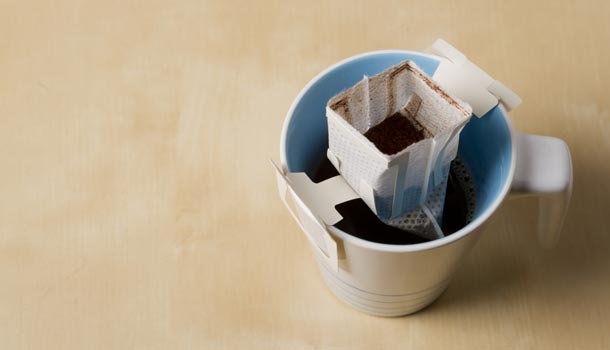Can drinking individual coffee and hanging-ear coffee lead to osteoporosis?

For professional baristas, please follow the coffee workshop (Wechat official account cafe_style)
Worrying about bone loss is probably the main reason why many women are "looking forward to but afraid of being hurt" about coffee.
Coffee has long been considered a risk factor for osteoporosis. Because its diuretic effect increases the excretion of water from the body, previous studies have found that caffeine increases the excretion of calcium in the urine. So, does this mean that drinking coffee leads to more calcium loss?
In fact, not necessarily, because a careful study of the body's running mechanism shows that in order to achieve systematic balance, the high calcium absorption rate and the increase in calcium excreted through the urine does not mean that there is a problem with the maintenance of bone mineral density; on the contrary, it is after menopause that estrogen leads to rapid bone loss, which is the most important factor affecting bone mineral density.
From the perspective of epidemiological data, past studies have found that caffeine intake is not associated with bone loss and fracture incidence in women aged 20 to 50, but if older women regularly drink more than four cups of coffee a day and have a smoking habit, it is likely to affect bone mineral density.
Post-middle-aged women control coffee intake
Another trial involving 3170 women aged 50 to 84 also showed that drinking more than two units of caffeinated drinks (two cups of coffee or two cups of tea) a day increased the risk of hip fracture by nearly 70 percent, suggesting that women after middle age should control their daily consumption of coffee and tea and increase their calcium intake from their diet in order to slow down bone loss. Li Bingying, an attending physician in the pediatrics department of National Taiwan University Hospital, believes that excessive coffee consumption in the elderly may be associated with osteoporosis, but if calcium is given in an appropriate amount, this effect can be ignored.
Important Notice :
前街咖啡 FrontStreet Coffee has moved to new addredd:
FrontStreet Coffee Address: 315,Donghua East Road,GuangZhou
Tel:020 38364473
- Prev

What is "talking about boutique coffee"? What kind of coffee can be regarded as fine coffee?
Communication of professional baristas Please follow the coffee workshop (official Wechat account cafe_style) for more than a decade, I have often been asked: what is fine coffee? What kind of coffee can be regarded as fine coffee? Not long ago in the essay "introduction to two Top Manors", I specifically mentioned that this issue is very controversial, so I will talk about it in this essay. Literally, boutique
- Next

Children under 12 are not allowed to drink coffee, especially instant coffee
Professional baristas follow the advertisement for the coffee workshop (official Wechat account cafe_style) in which a couple is intoxicated with the fragrant coffee while their two children look wistful when the clerk smiles and says, "I've got a better one for you." "turn around and take out coffee-flavored popsicles. In recent years, "drinking coffee" has become a success.
Related
- Beginners will see the "Coffee pull flower" guide!
- What is the difference between ice blog purified milk and ordinary milk coffee?
- Why is the Philippines the largest producer of crops in Liberia?
- For coffee extraction, should the fine powder be retained?
- How does extracted espresso fill pressed powder? How much strength does it take to press the powder?
- How to make jasmine cold extract coffee? Is the jasmine + latte good?
- Will this little toy really make the coffee taste better? How does Lily Drip affect coffee extraction?
- Will the action of slapping the filter cup also affect coffee extraction?
- What's the difference between powder-to-water ratio and powder-to-liquid ratio?
- What is the Ethiopian local species? What does it have to do with Heirloom native species?

